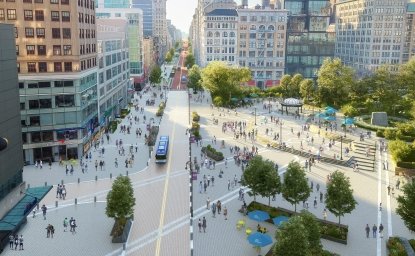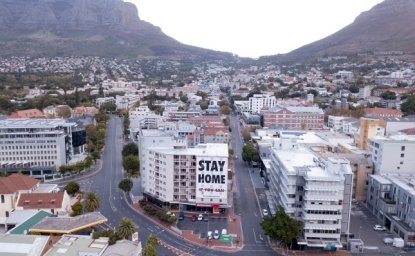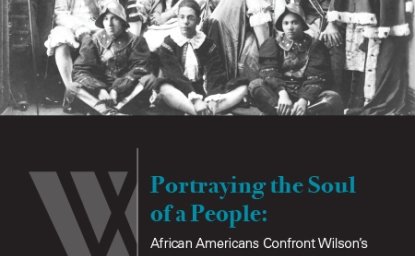Yet Another Transition? Urbanization, Class Formation, and the End of National Liberation Struggle in South Africa

Presented February 8-9, 1999, at the Woodrow Wilson Center for the Comparative Urban Studies Project's Research Working Group on Urbanization, Population, the Environment, and Security funded by the U.S. Agency for International Development. These policy briefs do not represent an official position of the Woodrow Wilson International Center for Scholars or the U.S. Agency for International Development. Opinions expressed are solely those of the authors.
South Africa's negotiated settlement is widely hailed as a small miracle. What is the state of the miracle five years on?
Urban context
Apartheid zoned urban areas for different races, ensuring that African townships were relatively far from white areas and lacked a tax base. Townships were deliberately under-developed, part of apartheid's grand design in which blacks were temporary sojourners in white areas before returning to their (mythical) homelands.
New post-apartheid metropolitan structures have been created, which jointly govern town and township, and are meant to direct funds more equitably. This is being hampered by a number of factors, principally a boycott of rent and service charges which has left the Greater Johannesburg Metropolitan Council R6 billion in arrears. Businesses and individuals are both guilty of non-payment.
At household level, non-payment is primarily located among the owners of formal dwellings in townships. They form the local petty bourgeoisie, who also control local ANC branches and civic associations. They extract payments from those who rent their out-rooms or land, but boycott their own payments. Tensions between them and their tenants are evident.
Shut out of local political structures, there is no apparent organisational home for those living in backyard or informal dwellings. There is a large political space opening for organising the poorest citizens. What kind of party and message will they respond to?
Stratification and xenophobia
Townships have an increasingly entrenched hierarchy. Formal homeowners are at the top. They are better educated and more likely to be employed than those living in backyard or informal dwellings, and control local organisations. Then come the backyard dwellers, who rent structures (or space to build their own) from the homeowners. They avoid political or community involvement for fear of eviction.
Both groups look with fear and hostility at 'squatters', those living in informal settlements. The 'squatters' are not welcomed into local structures, and are characterised as dirty and lawless. They in turn resent those living in the township proper because of the way they are regarded and treated.
In townships, people in formal dwellings are talking more and more about direct action to solve the crime wave gripping South Africa. Hostilities focus predominantly on 'illegals' - non-South African immigrants - who have moved into informal settlements and are seen to be 'invading' townships they have no claim to, bringing dirt and crime, and taking jobs. Controlling the influx of people to urban areas was a cornerstone of apartheid. Research suggests it is an increasingly common topic of conversation among black South Africans.
The three main township groups coalesce around their hostility to black non-South African immigrants, who are visibly different because they are 'too black', and are accused of crime, drug-dealing, and stealing jobs and women from South Africans. The accusations are repeated in the media, which seems to share the xenophobic sentiment.
Xenophobia has been rising steadily since 1990. In 1998, a number of murders of immigrants were committed. In December 1998 four Mozambicans, suspected of theft, were killed by 'necklace' (having a burning rubber tire placed around their waist). The situation is increasingly tense.
No moral leadership is being offered regarding migrants, particularly at local level, where 'squatters' and 'illegals' live within metres of each other.
Equally worrying is the way formal dwellers also talk of bringing back the hated 'pass laws' (influx control measures) to stop the movement of poor rural South Africans into cities.
These factors are occurring in a broader, socio-political context.
Democracy
A democratic political system has been designed and implemented but has still to become the norm. Principles of multi-party democracy and political contestation are widely supported, but must be realised in practice.
No single party will be able to represent 'black South Africa' because class interests, already divergent, will become antagonistic. A unifying enemy no longer exists as it did previously. All parties, including the ANC, will have to adjust to this new terrain.
The transition from apartheid to democracy is ending. South Africa is in the arguably more critical phase of establishing a working democracy.
ANC dominance
ANC dominance is probably assured for a decade: but the lines of stress and future change are emerging, and ANC hegemony is slowly diminishing. Polling data in the run-up to the 1999 general election show that the ANC should win 54% - 59% of the vote. But the data also show that a number of black voters are beginning to look for a new political home.And they want parties in touch with their new needs, not old 'struggle' parties.
Petty bourgeois elements are in control of local civics and the ANC. They dissuade active participation from poorer residents of backyard or informal dwellings. They are making a concerted bid to win local control of the ANC. The ANC cannot bring poorer citizens back into the fold with promises of dramatic redistribution. The negotiated 'miracle' rests on reconciliation, at the centre of which is the need to keep business interests happy. The ANC approach is to nudge the forces of gradualism to achieve a less unequal society. This is a difficult message to 'sell' to a deeply impoverished and highly unequal society.
The ANC is also focusing more attention on governing, where it has to find ways of working with the 'old guard', than its party machinery. The result is that a dissonance is emerging between the national message of delivery to the poor and the local reality of shutting out the poor.
Class formation
Class differences among Africans have emerged more clearly since 1990. Black middle and new ruling class elements have left the townships to live in formerly white-only suburbs, where they have been seamlessly absorbed.
Class differences in townships are measured by subtly differentiating signals. Resentment between 'squatters', backyard dwellers and formal homeowners is clear. Many civic associations, formerly key local structures which sought to work with entire communities, no longer offer an organisational home for poorer socio-economic groups. No organisation is yet occupying the space opening at grass-roots level.
So what?
To some extent, much of this can be regarded as part of the normalisation of South African politics. New class divisions are emerging to replace anti-apartheid unity, new parties will form to represent them, and old parties will shift their policies to more accurately represent the interest of their supporters or die out.
It moves beyond that, however, when we see the way in which black non-South Africans are increasingly blamed for the current crime wave and rising unemployment, and are increasingly the victims of violence merely because they are foreign. In a context of widespread poverty and deep inequality, anti-immigrant hostility is understandable. But hostility has rapidly turned into fatalities. The basis of hostility - to keep outsiders away from what few opportunities exist - also threatens to turn against South Africans living in informal settlements.
Stability is a critical attribute for developing countries in the global market. The factors mentioned above are serious threats to South Africa's future stability. They may also spill over to impact on the SADC region.
Regional implications
South Africa has to be successful, if the entire sub-Saharan region is not to be written off internationally as a hopeless case.
SADC countries are already wary of South African dominance economically and politically and, through President Mandela, symbolically. The regional political project is sensitive, and will almost certainly not survive on-going vigilante attacks on 'illegals'. Those attacks reflect in minutiae the over-bearing way South Africa and its business sector are perceived in the region.
Policy implications
There is no easy or quick solution. The following areas require special attention:
Democracy needs to be deepened, structurally and socially.
Although social tensions run fairly high in post-apartheid South Africa, the tolerance that allowed a negotiated end to apartheid remains in place - but needs to be reinforced and deepened.
Delivery of infrastructure and services needs to ensure that people in informal settlements, rural areas and other marginal areas gain tangible benefits from the 'new South Africa', and do so more quicklythan during the 1994-98 period. Improving economic performance is vital. In particular, access to economic opportunities for residents of townships and informal settlements must be increased.
Properly designed and targeted public education campaigns to persuade citizens to pay for services are important.
SADC needs to be strengthened, regionalism needs to be fostered and become relevant to the lives of people in the region. SADC currently plays almost no part in the day-to-day economic or social lives of southern Africans.
Underlying and feeding into all of these processes is deep poverty, afflicting South and southern Africans. Eradicating (not merely alleviating) poverty must remain the central focus of policy makers.

Urban Sustainability Laboratory
Since 1991, the Urban Sustainability Laboratory has advanced solutions to urban challenges—such as poverty, exclusion, insecurity, and environmental degradation—by promoting evidence-based research to support sustainable, equitable and peaceful cities. Read more

Explore More
Browse Insights & Analysis
Smart Cities and Climate Change: The Evolution and Curation of Knowledge

Coronavirus Shifts Car-Free Policy into High Gear

